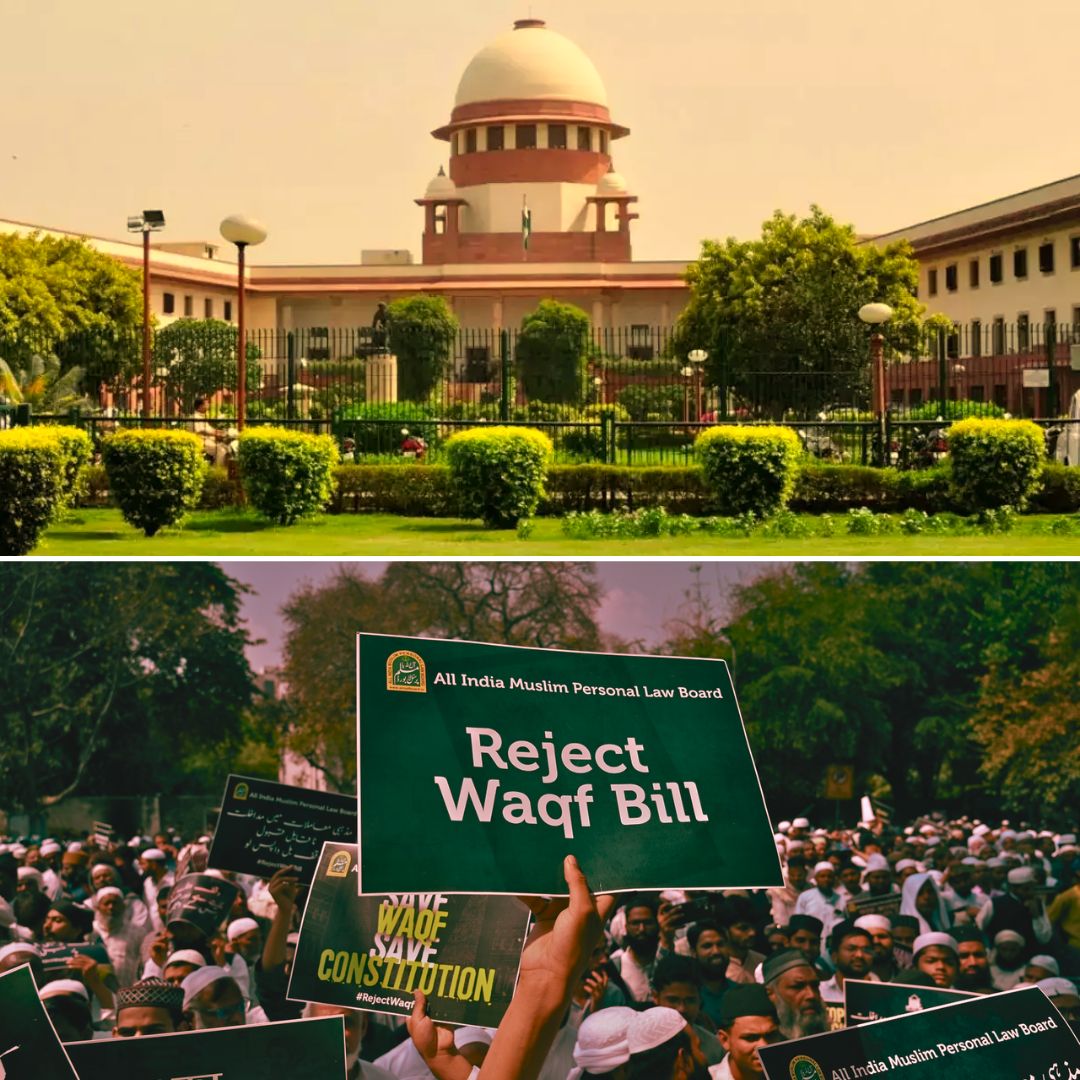The Supreme Court of India is set to hear 73 petitions challenging the constitutional validity of the Waqf (Amendment) Act, 2025, today at 2 PM. A three-judge bench led by Chief Justice Sanjiv Khanna, along with Justices Sanjay Kumar and KV Viswanathan, will preside over the hearings.
The Act has sparked nationwide protests, with critics alleging it infringes on fundamental rights and disproportionately impacts Muslim religious endowments. The government, however, defends the amendment as a necessary step to ensure transparency in the management of Waqf properties.
A Contentious Debate Over Rights and Transparency
The Waqf (Amendment) Act, passed on April 4 and enforced from April 8, has drawn sharp criticism for alleged discriminatory provisions. Petitioners argue that changes such as the removal of “waqf by user” under Section 3(r) undermine religious freedoms and property rights.
AIMIM leader Asaduddin Owaisi and RJD MP Manoj Kumar Jha are among those who claim the law violates Articles 14, 15, 21, and 25 of the Constitution. Conversely, the government has filed a caveat to ensure its stance is heard before any judicial order is passed, asserting that the amendments aim to curb mismanagement and misuse of Waqf properties.
Tracing the Journey of Controversy
The Act’s passage has been met with legal challenges from political leaders, religious organisations, and civil society groups. Critics highlight that it alters the legislative intent of the original Waqf Act (1995) and introduces state interference in Muslim endowments.
Notable petitioners include Jamiat Ulema-i-Hind President Arshad Madani and Samajwadi Party MP Zia Ur Rehman Barq. Protests have erupted across India, with demonstrators accusing the government of targeting minority rights under the guise of reform.
The Logical Indian’s Perspective
At The Logical Indian, we believe this debate underscores the need for harmony between governance and minority rights. While transparency in Waqf property management is crucial, it must not come at the cost of religious freedoms or constitutional safeguards.
We urge all stakeholders to engage in constructive dialogue to resolve these concerns amicably. What are your thoughts on balancing transparency with protecting minority rights? Share your views in the comments below!












